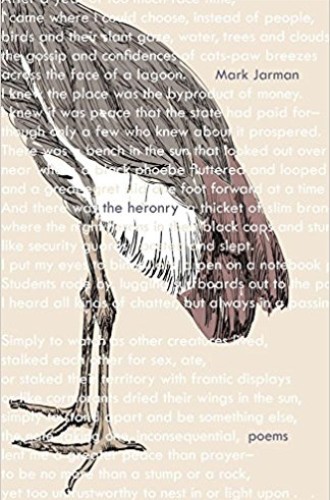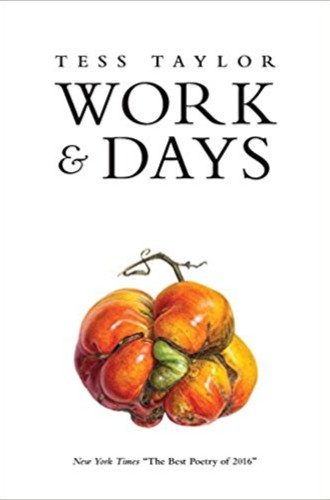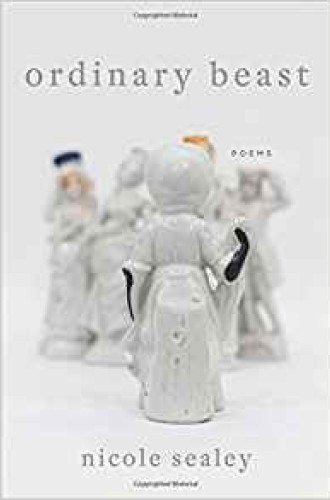The pleasures of good poems
This year, I've read the poetry of Mark Jarman, Tess Taylor, and Nicole Sealey with gratitude.
In a poem midway through Mark Jarman’s collection The Heronry, a student on a trip abroad (to France?) makes trouble for herself. She loses her passport, skips class, gets drunk, and gets arrested. She’s finally sent back home to her parents, but before she can be put on the plane there’s one final group excursion to a church, where the girl stands behind the altar and sings. “With a voice that glowed,” she sang “her rejection of our rejection.” Her singing “made us / recognize that our desire was being offered back.” It’s a wonderful poem in all kinds of normal poetic ways, and it’s wonderful in its depiction of the capacity of even a troublemaker (“Bad Girl Singing,” as the title has it) to offer everyone around her an unsettling gift. Not to mention there’s something intriguingly eucharistic about the formulation of desire being offered back.
A similar theme is sounded in some of the poems in Tess Taylor’s second book, Work and Days. In “Apple Buttering,” Taylor depicts some people carving the good parts from nearly rotten apples. The rot presumes finitude, and in its last lines the poem makes the passage of time explicit and commands the reader to notice its passing: “As we slice, the day hovers. / Soon it will not.” This sensibility echoes the book’s first poem, “Hung with Snow,” which reads like the English pastoral tradition channeling Bashō. Here it is in its entirety:
Houseman was right:
your life is short.
To miss even this springtime
would be an error.
Last week, I bought Nicole Sealey’s Ordinary Beast. The speaker of one poem boldly and somberly connects her medical history to the death of stars. (Summarized like that, it sounds sophomoric and sentimental; in the poem, it’s anything but.) A short, unsettling poem called “Unfurnished” evokes the feeling of being just that—unfurnished, an empty house. Two other poems play with the board game Clue. I’ve only been reading this book for six days, so I’ve not yet digested it, and I think I might sit here rereading it through the winter.
I’ve read the poems of Jarman, Taylor, and Sealey with gratitude over the last year. They’ve given me pleasure, they’ve given me something good to think about (that is, the poems themselves), and they’ve given me ways to think about the world and time and history and my own life. I read on a couch that sits across from a small horizontal painting by Seymour Rotman which depicts a lounging woman, maybe 38, nude, with boy-short hair, large breasts, and a generous belly. I love looking up at her. Like the poems, she’s confident, and she looks real.
Read the other 2017 Christmas picks here.








